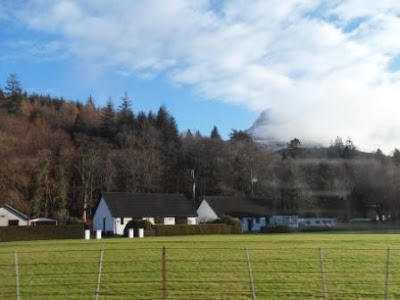 Nu ştiu în ce măsură or găsi chinezii drept un lucru flatant sau mai degrabă blasfemiator faptul că, între adversarii supralicitatului preşedinte al SUA, Barack Obama, sunt destui cei care îl numesc adesea ‘MaObama’.
Nu ştiu în ce măsură or găsi chinezii drept un lucru flatant sau mai degrabă blasfemiator faptul că, între adversarii supralicitatului preşedinte al SUA, Barack Obama, sunt destui cei care îl numesc adesea ‘MaObama’. Ca photoholic, am constatat (cu această ocazie), într-o oază de aparentă prosperitate a Chinei (Shanghai), că niciun alt lider occidental nu apărea pe magneţii suvenir (de frigider sau cum le-o spune?!) în afară de Obama.
Cum nici “Chairman Mao” – cum îi spunea pe un ton plin parcă de evlavie o chinezoiacă de 26 de ani – nu a reuşit să facă din a sa ‘Revoluţie culturală’ una mondială, nici Obama nu a reuşit să schimbe mai nimic prin America.
S-a cam ales praful de sloganul “Yes We Can” şi, pe 2 noiembrie, se prea poate ca cel adesea numit “cel mai puternic om al planetei” să coboare de pe piedestalul de mare lider umflat cu pompa la rolul de curiozitate a istoriei.
Pare greu de crezut ca primul afroamerican ajuns la Casa Albă să fi vrut sau să fi putut declanşa o ‘revoluţie marxistă’, aşa cum este acuzat, dar aceasta nu-l face deloc inutil a servi ca o simplă diversiune înaintea a ce va urma după el.
Un nou război de uzură între preşedintele SUA şi un Congres ostil, care va atrage o aşa-zisă “Americă slabă”, va fi doar unul dintre ingredientele unui fundal pe care vor putea izbucni revoluţii, răzmeriţe, tulburări… din China până în România.
Cu prea mici excepţii (Australia, Suedia) unde lucrurile merg cât de cât bine (adică mai bine decât în alte părţi) mai toate statele sunt butoaie cu pulbere. Nu ne mai trebuie decât un incident gen “Sarajevo, 28 iunie 1914”, ca lumea să ia foc.
De-abia astăzi, o revoluţie poate fi cu adevărat mondială, nu neapărat graţie noilor tehnologii, care ar permite o ‘Revoluţie română’ (sau ce o fi fost ea) multiplicată la scară planetară, ci mai ales a dezumanizării masive din ultimele decenii.
Nu scindarea atomului este cel mai mare pericol pentru omenire, ci scindarea sufletelor, sfâşierea până şi a celor mai palide amintiri legate de un Creator de unde venim şi în faţa Căruia toţi trebuie să dăm socoteală.
[Pentru toate episoadele din această serie şi toate postările de pe acest blog mergi la/For all the episodes of this series, and all the posts on this blog go to: Contents/Cuprins]


























